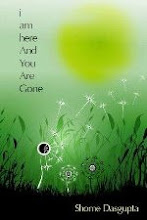"In the morning I feed the cats, make a pot of coffee and sit down on the sofa and open a volume of Remembrance of Things Past, in the Montcrieff Kilmartin translation. At the moment, I’m on The Guermantes Way, just after Marcel unexpectedly succeeds in kissing Albertine; he reflects on how inadequate the lips are for kissing. I read for an hour, almost as slowly as if I were reading in French. Sometimes I feel like I am reading in French. To navigate the topiary maze of Proust’s sentences, which can twine and undulate for an entire page, often requires reading out loud. The challenge is not just to follow those sentences’ syntax but also their turns of mood:
On certain days, thin, with a gray complexion, a sullen air, a violet transparency slanting across her eyes such as we notice sometimes on the sea, she seemed to be feeling the sorrows of exile. On other days her face, smoother and glossier, drew one’s desires on to its varnished surface and prevented them from going further; unless I caught a sudden glimpse of her from the side, for her matt cheeks, like white wax on the surface, were visibly pink beneath, which was what made one so long to kiss them, to reach that different tint which was so elusive. At other times, happiness bathed her cheeks with a clarity so mobile that the skin, grown fluid and vague, gave passage to a sort of subcutaneous gaze, which made it appear to be of another colour but not of another substance than her eyes; sometimes, without thinking, when one looked at her face punctuated with tiny brown marks among which floated what were simply two larger, bluer stains, it was as though one were looking at a goldfinch’s egg, or perhaps at an opalescent agate cut and polished in two places only, where, at the heart of the brown stone, there shone like the transparent wings of a skyblue butterfly, her eyes, those features in which the flesh becomes a mirror and gives us the illusion that it allows us, more than through other parts of the body, to approach the soul. (1009)As much pleasure as my morning reading gives me, it’s also a struggle. This isn’t because of the difficulties of Proust’s style, which, to be honest, is part of the pleasure of reading him--how often do you get to experience a sense of accomplishment while sitting on your ass in your bathrobe? It’s because I came into the kitchen with my Blackberry. If describing a Blackberry for a visitor from the last century--say for Marcel Proust, had he been somehow plucked off the Boulevard Hausmann in 1916and deposited, gasping and palpitating, in the eastern U.S. in 2010--I’d say it was about the size of a small cigarette box. That might connote its addictive properties. But it’s more like a black hole, a phenomenon that no one even imagined until decades after Proust’s death in 1922, a black hole that sucks up not matter but attention. I can’t go ten minutes without looking at it. If no new e-mail shows up in my message box--announced by a tiny red and white explosion that might be made by a tiny bomb--I use the Web browser to read the Times. Often I become so engrossed in an article--or, more often, in the clever or boneheaded but usually vituperative reader comments about an article--that fifteen minutes race by before I think of horny, hyper-aesthetic Marcel and his circle, and when I return, the spell they cast on me is broken. I open the book and it’s just words, lots of them. Too many.
Is the competition between Proust and the Blackberry a competition between literature and news? I don’t think so. If it were an actual newspaper on the sofa beside me, a paper one, I wouldn’t bother looking at it until I’d read at least ten pages of the Recherche. The competition is one between reading and something that resembles reading but is really a hybrid mode in which the familiar work of decoding clusters of tiny strokes and squiggles and extracting a world from them is a front for the hypnotic activity of pushing buttons and staring at a light-filled screen. The Blackberry allows its users to think of themselves as human while doing what lab rats do, except lab rats get rewarded with pellets of food. The reward of the Blackberry is the buttons and the screen."
{Peter Trachtenberg is the author of 7 Tattoos: A Memoir in the Flesh and The Book of Calamities: Five Questions About Suffering and Its Meaning. For more information, visit his blog here.}












